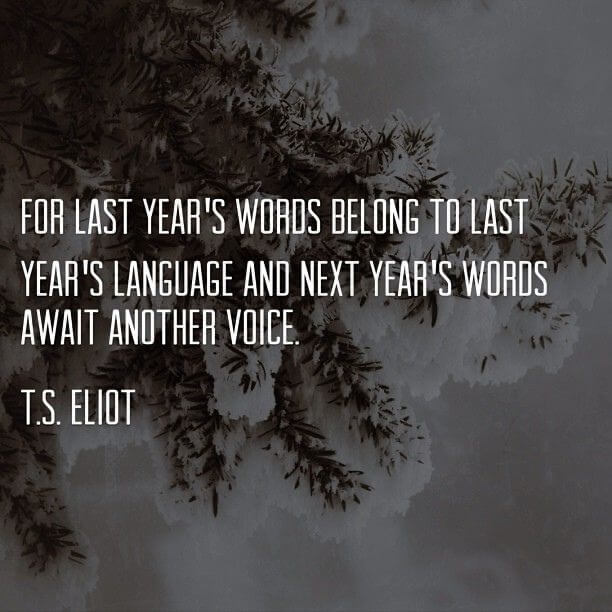Setting the People Free: Talk Given To the Anglican Benefice of St. Wilfrid, St.John’s and All Hallows, Lancashire. December 2021
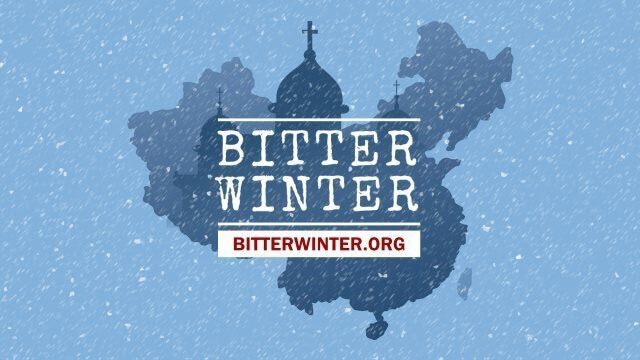
Canon McConkey told me that the theme which would link these Advent Talks were the words from the hymn “ Come thou long expected Jesus born to set thy people free” and he asked me to talk about persecution and religious freedom.
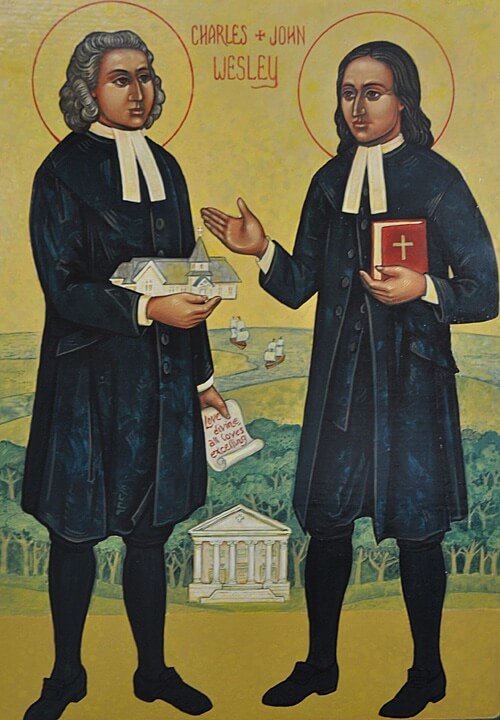
For me, as an admirer of the hymns, words, and lives, of the remarkable Wesley brothers that is an admirable and well-chosen text.
I will refer to some other hymns and carols as I proceed – and will put my remarks into the context of the Christmas festival, now just days away.
Of course, many who had waited with such anticipation, in Wesley’s words, for the long-expected Jesus, did not recognise Him when He came; and failed to grasp that his birth was not about freedom and political liberation from Roman captivity. Ultimately, as Jesus tells his followers, it is the truth that will set you free.
And over 2000 years millions upon millions of people – today 2.38 billion people – 31% of the world’s population – have chosen that freedom-giving-truth and embraced the Christian faith, knowing that in many places doing so may even be at the cost of their lives.
I love the Nativity but too easily we can wrap ourselves in tinsel and be caught up in the shopping frenzy and consumerism without reflecting, not on the price of presents, but on the price which others pay for the freedoms which we take so easily for granted.
In the whirly-gig of preparations for the great festival we easily overlook the awesome significance of the manger – when “the Word became flesh and dwelt among us” – but we also overlook the brutality and violence which accompanies the new Adam at his Bethlehem nativity.
It is a sobering thought that, even as those near magical and enchanted moments are being enacted, when the shepherds and the Magi kneel before Him and worship God, Herod’s ruthless butchers are sharpening and making ready their knives. In the words of another carol, the sixteenth century Coventry Carol, composed by Robert Croo in 1534. :
“Herod, the king, in his raging,
Charged he hath this day
His men of might, in his own sight,
All young children to slay.”
Even within days of His birth, the life of Jesus is threatened by Herod and his thugs. The theme of the slaughter of the holy innocents is brilliantly caught in Sullivan’s carol, “In Rama There Was A Voice Heard”.
This lament of a mother for her child doomed to die are words with applicability in our own times – in far away places and even in our domestic setting: with children too often the targets: the young girl, like Maria Shahbaz, raped, forcibly married, and forcibly converted in Pakistan – and now in hiding; the Ugandan or Congolese children murdered in a pagan ritual of child sacrifice; the child enlisted in Somalia to be a child soldier or a drugs runner; the boy or girl who, fleeing for their lives as a refugee from Syria or Eritrea, is trafficked, exploited, robbed of innocence or abused; or the baby who never makes it to a manger and whose unique life is abruptly and violently ended.
In all these situations we see a detestation of innocence and the stirrings of evil – the demons feasting in their own fashion – always present, even in the beauty of that moment of birth in Bethlehem. This story tells us everything we need to know about the reality of evil.
There is a children’s picture story where a Santa Claus – St.Nicholas- is reading to the baby Jesus the story of the baby’s birth. “How does the story end?” The baby asks.
Perhaps because we know the answer to that question, we can be very realistic about Christmas, not least because of the visceral hatred that even today lacerates the little town of Bethlehem.
Christmas is not about trying to escape reality.
All people who suffer and all people who are persecuted are represented by the boy in the manger.
His acute vulnerability should challenge us to pit ourselves – and to become far more vocal – against today’s Herods.
Beyond the conviviality – and even sentimentalism – of Christmas Day itself, lies the slaughter of the innocent – on the orders of a man who had political power – and it is no coincidence that the liturgical calendar moves rapidly to the second day of Christmas and the murder of the Deacon, Stephen, the first Christian martyr, stoned to death in the year 36 AD after being denounced for blasphemy – and Christians and others are languishing in prisons this very day on the same charge of blasphemy.
In many places there will be no celebration of Christmas – because it is one long and bitter winter.
C.S.Lewis, in his Narnian Chronicles, describes a world caught in perpetual terror: “it is winter in Narnia” said Mr.Tumnus “and has been for ever so long…always winter but never Christmas.”
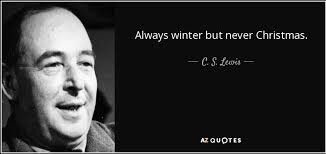
Who in 2021 are caught in this bitter winter? Who are the innocents? Who are the Stephens – and what are we doing to strengthen and support them? How are we using our freedoms and our voices to bring them the opportunity to live without fear?
In the 1980s as a young Member of the House of Commons, with an interest in freedom of religion or belief, I travelled in the former Soviet Union and Eastern Europe and campaigned for Christian and Jewish victims of religious persecution.
Meeting or campaigning for people like the Siberian Seven, Alexander Ogorodnikov, Vladimir and Marsha Slepak,Valeri Barinov, Fr.George Calciu and many others was deeply inspiring.
In Ukraine I spent time with a Bishop who had spent 17 years in prison and a layman who was Chairman of the Committeee for the Defence of the Greek Catholic Church and who had been in the same Soviet prison – for 18 years. For them their faith was worth dying for.
And it was a faith that had seen vast numbers of people despatched to Soviet gulags and imprisoned.
Their Communist masters also did their best to supress Christmas.
Remember that in Russia, the Communists replaced St. Nicholas with “Did Moroz,” or Grandfather Frost.
Christmas trees were banned, and Stalin folded all Christmas celebrations into secular New Year celebrations and encouraged school children to spit on crucifixes.
Here they had something in common with Hitler’s Nazi ideologues who saw organized religion as an enemy of the totalitarian state and its propagandists did all they could eliminate the Christian aspects of the holiday, promoting instead numerous Nazified Christmas songs, which replaced Christian themes with the regime’s racial ideologies.
Their Soviet Communist counterparts rewrote a much-loved Ukrainian Christmas carol, “Nova Radist Stala” (Joyous News Has Come to Us), replacing it with the words “The joyous news has come which never was before. Long-awaited star of freedom lit the skies in October [the month of the Revolution]. Where formerly lived the kings and had the roots their nobles, there today with simple folks, Lenin’s glory hovers.”
Later, Communists in Vietnam forbade children’s choirs to sing “Silent Night.”and Christmas was banned in Castro’s Cuba.
In 1983, in Communist Romania, under the dictatorship of Nicolae Ceausescu, a Catholic priest, Father Geza Palffy, preached against Ceausescu’s diktat that December 25th would be a workday, not a holiday. The following morning the Securitate – the secret police – arrested him. He was beaten, imprisoned, and died.
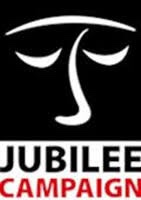

Out of those campaigns came the formation of Jubilee Campaign – which I co-founded in Parliament – and collaborative work with organisationas and charities like CSW (Christian Solidarity Worldwide), Open Doors and Aid to the Church in Need.
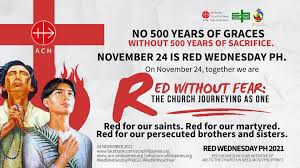

After the fall of Communism Jubilee’s focus moved increasinly to the Middle East, Africa and the Far East – and to the denial of freedom and persecution of millions of people.
With my friend, Baroness Caroline Cox I have travelled to North Korea on several occasions.
The irony wasn’t lost on me, or Caroline, as on one occasion arriving in North Korea, as our Air China plane touched down at Pyongyang airport the cabin was filled with the usual end-of-flight piped music to calm passengers’ nerves.
Usual, except that the State-owned Chinese aircraft arriving in North Korea was belting out Isaac Watts’ Christmas carol, written in 1791, and based on Psalm 98, “Joy to the world, the Lord is come. Let earth receive her King.”
Rather like Narnia it’s been a very long time since Christmas was celebrated in a city which was once known as the Jerusalem of the East; a very long time since its people experienced the joy celebrated in Isaac Watts’ carol.
North Korea’s leaders might reflect that, in his original manuscript, Watts not only celebrates Christ’s first coming but also wrote of His triumphant second coming – His return when He will judge and hold all to account for their deeds.
A UN Inquiry has described Kim’sNorth Korea as “ a State without parallel” and says its leaders should be arraigned before the International Criminal Court for crimes against humanity.
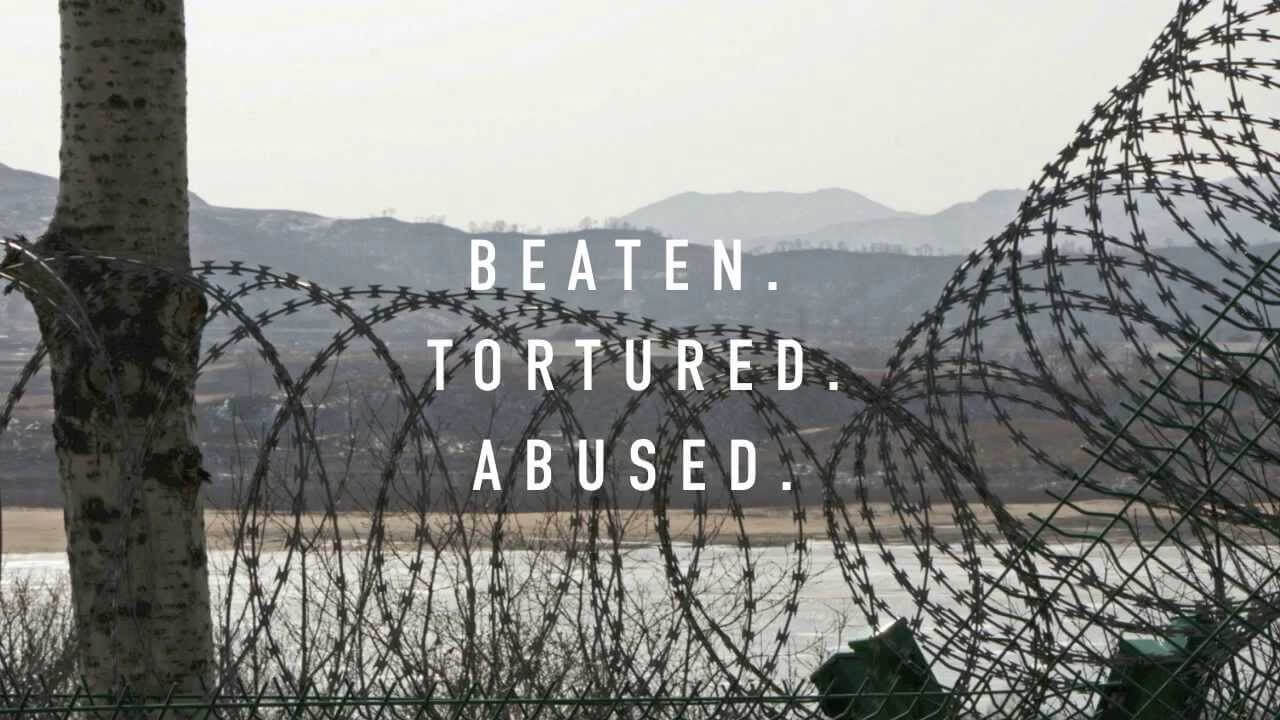
There are around 250,000 people in closed off villages, detention centres, prisons, and labour camps in North Korea. And of those, 50,000-70,000 are Christians.
In four token, hollow and, largely fake, Potemkin-style official churches – the only ones in the country – we saw the attempts to fool visitors into believing that the regime permits belief in something other than its own dynastic ideology.
But North Korea is not an isolated case.
Jeremy Hunt, while Foreign Secretary, asked the Bishop of Truro, Bishop Philip Mounstephen, to undertake an Inquiry into the persecution of Christians worldwide.
In a highly authoritative report he says 250 million Christians are persecuted worldwide.
Although the most persecuted group of people are, as he says, Christians, he and I both believe that in speaking up for them we must focus on the principle of religious freedom for all and an insistence that we uphold both Article 18 of the Universal Declaration of Human Rights and the Genocide Convention.
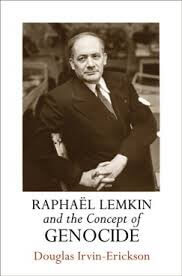
The Convention and even the word Genocide came fro the campaigning of the Jewish lawyer, Raphael Lemkin – more than 40 of whose family were slaughtered in the Genocide of European Jews – and who said that “international co-operation” was needed, “to liberate mankind from such an odious scourge”.
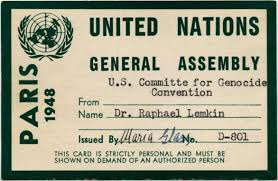
The Convention and Article 18 emerged from the infamies of the 20th century—from the Armenian genocide– which led to the deaths of 1.5 million Christians – to the defining depredations of Stalin’s gulags and Hitler’s concentration camps; from the pestilential nature of persecution, demonisation, scapegoating, and hateful prejudice; and, notwithstanding violence associated with religion, it emerged from ideology, nation and race. It was the bloodiest century in human history.
The four great murderers of the 20th century—Mao, Stalin, Hitler and Pol Pot—were united by their hatred of religious faith. As he planned the Final Solution Hitler had scornfully said of the Armenians Genocide – “who now remembers the Armenians?“
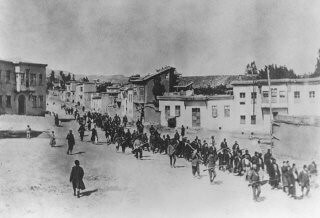
And yet, how quickly we too forget and fail to act, and even to use our freedoms to speak out for those who can’t.
Article 18 and the Genoicde Convention were promulgated in 1948 in response to the horrors of the Holocaust.
Article 18 insists that:
“Everyone has the right to freedom of thought, conscience and religion; this right includes freedom to change his religion or belief, and freedom, either alone or in community with others and in public or private, to manifest his religion or belief in teaching, practice, worship and observance.”
The declaration’s stated objective was to realise,
“a common standard of achievement for all peoples and all nations”.
Eleanor Roosevelt, the formidable chairman of the drafting committee, argued that freedom of religion was one of the four essential freedoms of mankind.
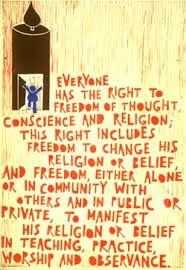
In her words:
“Religious freedom cannot just mean Protestant freedom; it must be freedom of all religious people”, and she rejoiced in having friends from all faiths and all races.
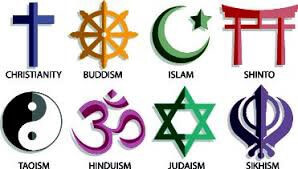
Yet Article 18 is honoured in the breach while the failure to implement the Genoicde Convention, an international treaty which lays on us the duty to predict, prevent, protect, and punish those responsible, is a terrible stain on the international community.
From Rwanda to Bosnia, Cambodia and Burma to Darfur, Iraq to Xinjiang and to the unfolding genocides in northern Nigeria and Tigray, again and again mass murderers have been getting away with genocide.
Where was the international outrage when over Christmas in 2020, Islamic State Beheaded 11 Nigerian Christians; or in 2015 when they beheaded 21 Egyptian Coptic Christians murdered on the seashore in Libya.
In Nigeria – a country which received more than £2 billion in aid from the UK in the last decade – averaging £800,000 every day – there has been systematic persecution and horrific executions, abductions, and the unfolding genocide has been wantonly ignored
The Prime Minister has rightly said that “In light of mounting evidence that Christians suffer the most widespread persecution… We will use the UK’s global reach and programme funding to improve the lives of persecuted people.” And he said that “We will do everything possible to champion these freedoms…. We are determined to use the tools of British diplomacy in this cause, including our permanent seat on the UN Security Council.”
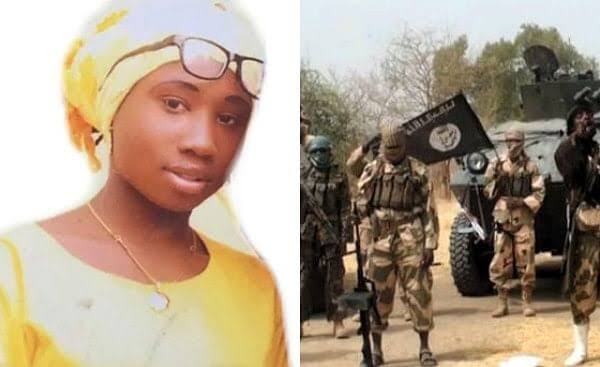
These words are all very well and good, but tell that to Rebecca Sharibu, who travelled from Nigeria to see me at Westminster.
Rebecca is the mother of Leah Sharibu who was just 14 when she was kidnapped from a boarding school in Dapchi in Yobe State in 2018 – raped, impregnated and attempts made to forcibly convert her. Why is she still incarcerated and held in captivity – with little action taken on her behalf of that of the Christian community by the Buhari Government. And when did any of us last write to the Nigerian High Commissioner to demand her release?
Why have we still failed to bring to justice those who butchered and stole the homes and possessions of the Christians of Mosul and Nineveh Plainin Northern Iraq – which I visited in 2019 – and whose homes were daubed in red with the letter N for Nazarene and who like the Yazidis and Kurds have suffered grievously.

Or what of Pakistan, a Commonwealth country – where, this Christmas, Maria Shahbaz remains in hiding. Aged 14 this Christian girl managed to escape after being kidnapped and forced to marry her abductor – one of around 1000 Christian and Hindu girls abducted every year. Having received repeated death threats Maria’s family have gone into hiding. I raised her plight last month with the Governor of the Punjab during his visit to the UK. I gave him our new report on abductions and also details of the deaths of two Christians working in sewers without protective clothing who were poisoned by gas and who rescue services refused to rescue.
During a visit to Pakistan, I saw the primitive conditions in which Christians are forced to live – in so called colonies: I saw families living in hovels with dirt floors, in shacks without running water or electricity; little education or health provision; squalid and primitive conditions – all completely off the world’s radar.
Thousands upon thousands of people are condemned to lives of destitution and misery.
When the Christian Minister for Minorities, Shahbaz Bhatti, and his friend, Salman Taseer, the Muslim Governor of the Punjab, called for reforms, both men were murdered. Bhatti’s assassins have never been brought to justice.
If you cant bring to justice the murderer of the man who murdered your Minister for Minorities what hope is there for anyone else?
Where is the justice for the two Christian children forced to watch a lynch mob of 1,200 burn alive their parents or justice for the children from minorities working in brick kilns, workshops, factories or as domestic servants; or justice for Iqbal Masih, an incredibly brave 12-year-old Christian boy, shot dead for rebelling against enslavement; or justice for the girls from minorities being sold in faith-led trafficking to Chinese gangs? Mere words are worthless to minorities who are ghettoised into squalid colonies and forced to clean latrines and sweep streets.
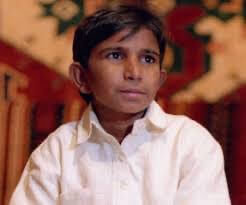
Over the past decade, £2.6 billion of British aid has poured into Pakistan – again, on average, £800,000 every single day.
But failure to differentiate how and where we spend this money leads the Government to admit it has no idea how much of the aid reaches these destitute, desperate minorities. When did we last raise this with an MP?
And let me conclude by looking further east, to China, whose beleaguered people yearn to be free and for the bitter winter to end.
Only today I learned of a Christian couple who have been given 7 years imprisonment and a fine of 250,000 Yuan (£30,000) for importing Christian religious literature.
I have been to Western China and Tibet and have regularly spoken out about the atrocities perpetrated by the Chinese Communist Party – who reserve a special place of hatred in their man made hell for people who have religious beliefs.
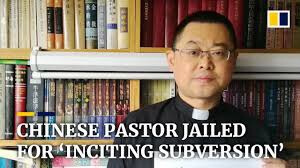
Wang Yi
These include those who have suffered in its programmes of forced sterilisations and forced abortions; those who have seen their churches destroyed; their bishops and pastors, such as Wang Yi, incarcerated – and whose story – and all of these others – are told on my web site.
It includes lawyers, dissenters, journalists – such as the young Christian woman Zhang Zhan tortured and jailed for 4 years for shining a light into the origins of the Covid pandemic in Wuhan. Last month,concerned for her deteriorating health, the UN called for her release.
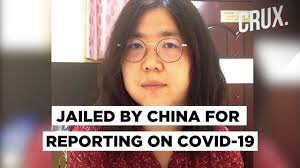
It includes Falun Gong practitioners whom Sir Geoffrey Nice QC’s investigative Tribunal says have been subjected to forced organ harvesting.
Since the enormities of the CCP’s Cultural Revolution –the deaths over 70 years of 50 million Chinese people – and the massacre in Tiananmen Square, we have seen outrages in Tibet and Hong Kong and the intimidation of Taiwan
As for the 1 mllion Uyghur Muslims in re-eductaion camps -concentration camps – the US Secretary of State, Anthony Blinken says “The forcing of men, women and children into concentration camps, trying to, in effect, re-educate them to be adherents to the ideology of the Chinese Communist Party, all of that speaks to an effort to commit genocide.‘” Liz Truss and the House of Commons have also named it as a genocide – but the British Government has declined to do so.
This Christmas, then, spare a thought – and maybe a prayer and a raised voice – for Zhang Zhan, Wang Yi and the Uyghurs, for the ancient Christian churches and Yazidis still facing genocide in the Middle East, for the Nigerians like Leah Sharibu, for Pakistanis like Maria Shahbaz, for the North Koreans and many many other Christian minorities who are part of the 250 million Christians persecuted worldwide.
And in celebrating the freedoms we enjoy recall the words of warning of the dangers of silence from two Christians murdered by the Nazis for voicing their opposition: the Protestant theologian, Deitrich Bonhoeffer, who said“ not to speak is to speak, not to act, is to act,“and Edith Stein, the Catholic nun, who said that “those who remain silent are responsible“.
Let me end with the words of TS Eliot who wrote that “last year’s words belong to last year’s language and next year’s language and next year’s words await another voice.”
Perhaps that new voice will be yours
